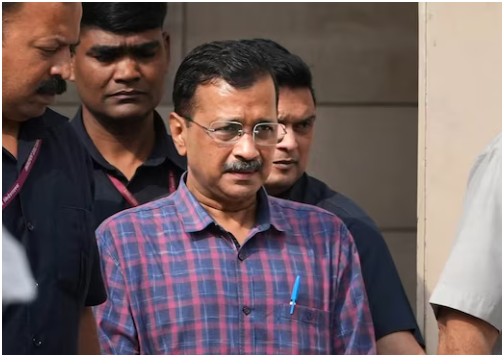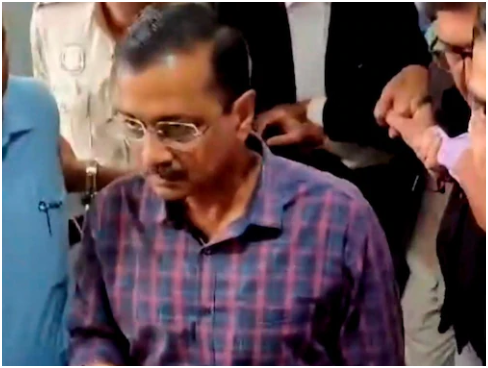Kejriwal Battle: Fighting Against Obstruction in Delhi High Court Election Challenge
Kejriwal Battle: Legal Challenge to Election Participation Hits Delhi High Court
Chief Minister Arvind Kejriwal‘s plea against his arrest by the Enforcement Directorate (ED) in the liquor policy case took center stage in the Delhi High Court, raising critical questions about the timing and implications of his detention. As the legal proceedings unfolded on Wednesday, advocate Abhishek Manu Singhvi, representing Kejriwal, underscored the alarming aspect of the arrest’s timing, suggesting a deliberate attempt to obstruct his participation in the upcoming election.
Singhvi contended that the timing of Kejriwal’s arrest, strategically positioned just ahead of the election, cast serious doubts on the integrity of the democratic process. By depriving the petitioner of the opportunity to engage in electoral activities, including campaigning and voter outreach, the arrest seemed designed to undermine the Aam Aadmi Party (AAP) and influence the electoral outcome preemptively.

The urgency surrounding Kejriwal’s arrest raised fundamental questions about the principles of democracy and the sanctity of free and fair elections. Singhvi emphasized that a level playing field is not merely a rhetorical concept but a cornerstone of democratic governance, essential for preserving the integrity of the electoral process. The calculated timing of the arrest, aimed at incapacitating Kejriwal’s political involvement, struck at the core of democratic principles and threatened the foundational structure of the electoral framework.
Highlighting the absence of substantial evidence supporting Kejriwal’s arrest under Section 50 of the Prevention of Money Laundering Act (PMLA), Singhvi called into question the validity and necessity of the ED’s actions. Despite multiple summons and prolonged investigations, the ED failed to establish a compelling case against the chief minister, further underscoring the arbitrary nature of his detention.
Singhvi raised concerns regarding the ED’s remand application, which purportedly sought to ascertain Kejriwal’s role without providing sufficient grounds for his arrest. The lack of substantive justification for detaining Kejriwal underscored the arbitrary nature of the ED’s actions and raised doubts about the agency’s motives and objectives.
The subsequent judicial custody imposed on Arvind by the Rouse Avenue court on April 1 further compounded concerns surrounding the legality and fairness of his detention. The ongoing proceedings in the Delhi High Court, initiated by Kejriwal to challenge his arrest, represent a critical juncture in safeguarding his rights and upholding the principles of justice and democracy.
As the legal battle unfolds, the implications extend far beyond Kejriwal’s individual case, resonating with broader concerns about political interference, judicial independence, and the rule of law. The outcome of this legal dispute will not only shape Kejriwal’s political future but also influence public perceptions of accountability, transparency, and democratic governance.

The Delhi High Court hearing on Arvind’s arrest has raised significant concerns about the integrity of the electoral process and the principles of democracy. By challenging the timing and legitimacy of his detention, Kejriwal seeks to uphold the fundamental rights enshrined in the Indian Constitution and reaffirm the commitment to a fair and equitable electoral system. As the legal proceedings progress, the nation watches closely, awaiting a verdict that will resonate with the core values of justice, equality, and democratic governance.
The ramifications of Arvind’s arrest extend beyond the confines of legal proceedings, reverberating throughout the political landscape of Delhi and beyond. As a prominent figure in Indian politics, Kejriwal’s detention has sparked debates about the intersection of law, politics, and democracy, raising questions about the impartiality of law enforcement agencies and the independence of the judiciary.
Moreover, Kejriwal’s arrest comes at a crucial juncture in Delhi’s political trajectory, with the impending elections looming large on the horizon. The timing of his detention, strategically positioned just ahead of the electoral campaign, has injected an element of uncertainty and volatility into the political arena, reshaping the contours of the electoral landscape.
For the latest updates-click here.
